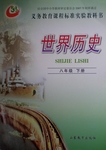题目内容
A well-written composition ________ a good choice of words and clear organization among other things.
- A.calls on
- B.calls for
- C.calls up
- D.calls off
B

练习册系列答案
 探究与巩固河南科学技术出版社系列答案
探究与巩固河南科学技术出版社系列答案
相关题目
题目内容

 探究与巩固河南科学技术出版社系列答案
探究与巩固河南科学技术出版社系列答案